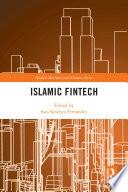
Islamic Fintech
The implementation of new technologies is expected to boost the development of Islamic Finance by increasing accessibility to banking and other financial services in Islamic communities and democratizing access to investment opportunities. At the same time, new technologies will increase financing opportunities and facilitate asset management for Sharia-compliant businesses. This collection of essays from selected experts in the field comprise some of the most topical issues on Islamic Fintech, combining a business focus with legal insights. The book takes as a point of departure the role that Islamic Fintech can play in promoting sustainability. The social vision of welfare improvement and justice is already embedded in Sharia’s economic rules, which makes Islamic Finance particularly well suited to bridge the gap between sustainability and funding. Although it is not without challenges for the industry, technology will help unleash its potential. With a holistic approach to Islamic Fintech, the contributing authors address the application of new technologies to Islamic Finance, including robo-advisory, crowdfunding and digital ledger technology (both in the issuance of bitcoin and the registration of securities in tokenized form) and in certain sectors such as takaful (takaful-tech) and health (e-health). Finally, they explore the challenges posed by anti-money laundering (‘AML’) in the specific realm of Islamic Fintech. The book combines theoretical analysis with a practical focus, both through case studies and directly through the experiences of leading entrepreneurs. In addition, it provides insights on legal and regulatory aspects, which are key in a field that is still in its infancy and needs support from lawmakers and regulators. It is, thus, a reference for academics, legal practitioners, policymakers, entrepreneurs and the Islamic Finance community.
- ISBN 13 : 1000367800
- ISBN 10 : 9781000367805
- Judul : Islamic Fintech
- Pengarang : Sara Sánchez Fernández,
- Kategori : Business & Economics
- Penerbit : Routledge
- Bahasa : en
- Tahun : 2021
- Halaman : 102
- Google Book : http://books.google.co.id/books?id=rDAXEAAAQBAJ&dq=intitle:fintech&hl=&source=gbs_api
-
Ketersediaan :
This collection of essays from selected experts in the field comprise some of the most topical issues on Islamic Fintech, combining a business focus with legal insights.









